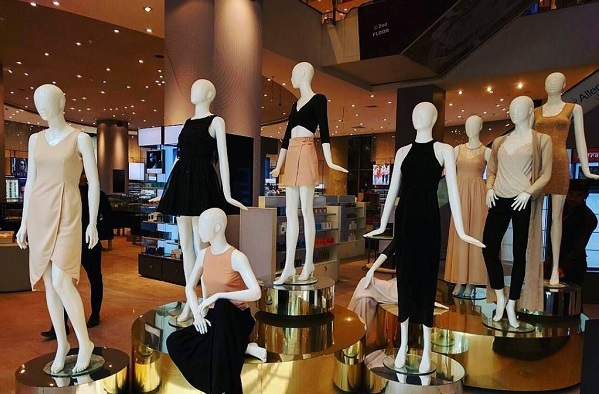The Kano Hisbah Board says it has been engaging with indigenous tailors in the state ahead of an implementation drive following its ban on the usage of mannequins for the display of apparel.
Hisbah is a religious corps responsible for the implementation of Shariah law in Kano.
In July 2021, it had banned mannequin use by fashion entrepreneurs, boutique owners, and in commercials.
The Kano Hisbah had argued the practice was “immoral” and violated Islamic provisions and teachings.
Harun Ibn Sina, commander-general (CG) of the board, spoke with TheCable Lifestyle following a meeting with the National Association of Tailors in Kano.
He said tailors who insist on using mannequins must rip off their limbs, heads and keep their shoulders concealed.
“Some took it as mere fashion. If you make a human structure and display clothes with it in the front of your shop, it’s prohibited in Islam. Except you removed the head and ensure the breasts or shoulders are covered.” he said.
“This is so one won’t look and start feeling things. Hisbah tries to enlighten the tailors about these. It’s important that they obey. They’re supposed to believe what we have said because it is in the context of the Holy Quran.
“It’s nothing more and nothing less. If they insist on using mannequins, they should remove the head because it can not be human without the head. If it’s female, don’t allow the breasts, backside, leg, or chest to be exposed.
“Do that and there’s no problem. At the meeting, most of the tailors understood what we were trying to enlighten them about. They pledged to abide by this. Kano is 99 percent Muslim. Non-Muslims are not in the majority.
“So they are confident in what we say. They’re law-abiding because we’re working hand-in-hand.”
Sina: Ban covers non-muslims if they’ll continue working in Kano
Questioned on how its ban affects non-Muslim tailors, the commander-general said he is confident in his approach for such cases.
“This regulation covers non-muslim tailors. That percentage, we will reach out to them and explain. I know there’s a percentage whose cases are brought here in terms of disagreements between them. We solve it amicably,” he said.
“We work for both Muslims and non-muslims. As long as you continue to live in Kano, you must abide by the laws of the state. We live peacefully with non-muslims but, when we meet non-compliant ones, we’ll know what to do.
“We won’t be harsh. We’re soft so we will convince them and they’ll understand us. We’re not law enforcement but law enlightenment agencies. Hisbah is fighting against moral decadence. Don’t smoke, drink, or do prostitution.
“Don’t do hard drugs. We’re working hand-in-hand with the police, the military, and correctional centres.”
‘We’ve warned members of risks’ — Kano tailors union wades in
Auwalu Abdullahi Maigari, the executive chairman of Kano tailors, said he looks to initiate seminars across the 44 local government areas in Kano ahead of the full commencement of the Hisbah board’s implementation drive.
“Tailors are responding because the rule is of Islam. If they don’t, Hisbah law can work on them. We’ve organised and had meetings. We’ve made announcements so they have to hear. Tailors using it are not much,” he said.
“Not all can afford it. Some are sold for N50,000 or N80,000. How many can buy it? Only a few. The Hisbah says you can fall on the wrong side of the law if you undress these dolls and leave them naked. They’ll catch you.
“We told the tailors what is happening and the risks. We’re preparing seminars for the 44 local government tailors before the implementation drive begins. It’s a Muslim state. You must follow the rules, even if you’re not Muslim.”
Copyright 2025 TheCable. All rights reserved. This material, and other digital content on this website, may not be reproduced, published, broadcast, rewritten or redistributed in whole or in part without prior express written permission from TheCable.
Follow us on twitter @Thecablestyle


This is definitely inconvenient. I don’t know about everyone else, I love looking at the clothes on the mannequins. We can easily imagine the image when we wear such clothes. This can also be considered as part of the culture of fashion, a culture that is deeply imprinted in our minds.